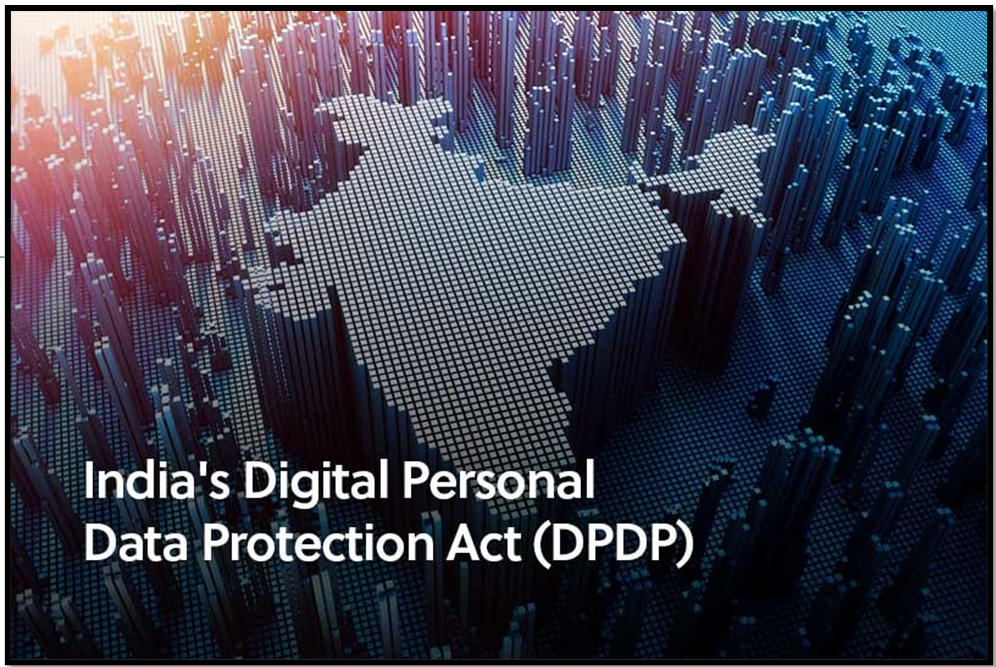THE IMPACT OF INDIA’S NEW DATA LAW ON JOURNALISTIC FREEDOM
Syllabus:
- GS 2: Government policies and interventions for development in various sectors and issues arising out of their design and implementation.
Focus:
- India implemented the Digital Personal Data Protection (DPDP) Act, 2023, marking a significant step in data privacy.
Source: Cookiefirs
In August 2023, India implemented the Digital Personal Data Protection (DPDP) Act, 2023, marking a significant step in data privacy. While intended to safeguard personal data through consent and rights to data erasure, this new legislation raises concerns for the realm of journalistic freedom. The withdrawal of exemptions for journalistic activities under the DPDP Act presents potential barriers to free speech and investigative journalism.
Introduction of the Digital Personal Data Protection (DPDP) Act, 2023
- Introduction Date: India enacted its first comprehensive data protection law, the DPDP Act, in August 2023.
- Implementation Timeline: The government plans to fully operationalize the law with specific rules post-general election.
- User Consent Requirement: Central to the law is the requirement for users’ consent to process their personal data.
- Rights and Obligations: The act ensures basic rights such as data access and erasure and mandates obligations for companies.
- Complaints Mechanism: It establishes a body to address grievances related to data processing.
Key Features
|
Journalistic Exemption Withdrawn
- Previous Drafts: Early drafts of the DPDP Act exempted journalistic activities from certain privacy obligations.
- Final Law Changes: The final version of the law removed these exemptions, requiring journalists to obtain consent before using personal data.
- Editors Guild of India’s Concern: The Editors Guild highlighted risks to free journalism and requested reinstatement of the exemption.
- Impact on Journalism: Without exemptions, journalists may struggle to publish stories without subjects’ consent, affecting investigative reporting.
- Potential for Censorship: Subjects of journalistic stories could use their right to erasure to remove published content.
Government’s Oversight and Powers
- Information Requests: The law empowers the government to demand information from any data processor in India.
- Source Confidentiality at Risk: Such powers could jeopardize the confidentiality of journalistic sources and documents.
- Public Consultation Issues: Despite multiple drafts, feedback from public consultations was not publicly shared, limiting transparency.
- Lack of Clarity on Exemptions: No clear reasons were given for the withdrawal of journalistic exemptions in later drafts.
- Inadequate Town Hall Discussions: Government-led discussions did not address the concerns regarding the withdrawal of exemptions.
Proposed Solutions and Future Directions
- Transparent Consultation Process: Advocating for an open and transparent public consultation process to refine the law.
- Government Remedial Power: Under the DPDP Act, the government has the authority to exempt any data processor from the law’s provisions swiftly.
- Immediate Exemptions Needed: It’s crucial for the government to use its powers to exempt journalistic activities to safeguard free speech.
- Inclusion in Core Law Text: Ideally, exemptions for journalism should be explicitly included in the main text of the DPDP Act.
- Support for Citizen Journalism: The government should also consider exemptions for citizen journalists to promote a free and open press.
Conclusion
The DPDP Act, while a pivotal advancement in data protection, inadvertently poses challenges to journalistic practices by limiting access to and use of personal information necessary for public-interest reporting. To preserve the essence of a free press, it is imperative for the government to reconsider and reintegrate exemptions for journalistic activities within the law. Only through such measures can the Act truly balance individual privacy with the societal need for transparency and accountability.
Freedom of Speech
|
Source:The Hindu
Mains Practice Question:
Examine the impact of the Digital Personal Data Protection (DPDP) Act, 2023, on journalistic freedom in India. Discuss the implications of withdrawing exemptions for journalistic activities and suggest measures to balance data protection with the freedom of the press. (250 words)
Associated Articles:




